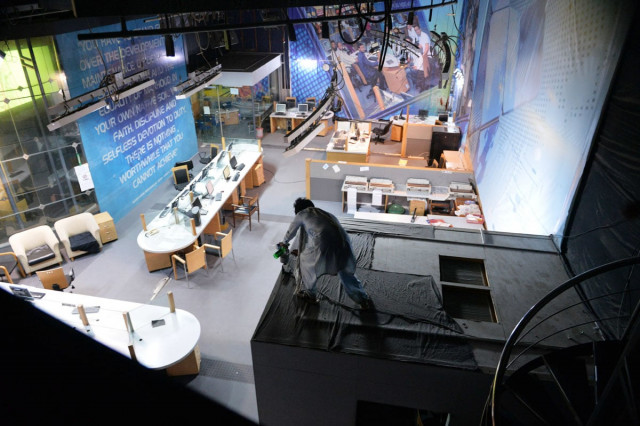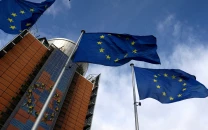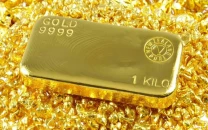Burning the house down in protest
The real impact on economy will be long-term damage, for which the blame lies squarely with the PTI and Imran Khan.


The damage done to Pakistan’s fragile democratic transition by Imran Khan’s PTI and Tahirul Qadri’s PAT has by now been well documented and lamented by the few responsible sections of the press remaining in the country. What is less understood or appreciated, however, is the extent to which this protest movement has damaged the economy (the attack on PTV being a particular case in point). From the shattered trust of investors — both local and foreign — to the higher transaction costs of imported goods due to a higher exchange rate, the full cost of the protests in Islamabad is likely to far exceed the cost of cleaning up the Red Zone.
To even begin a tally of the damage to the economy done by the Islamabad protests is a difficult task. We will not even count the many short-erm losses — the sharp decline in the exchange rate, the likely ensuing spike in inflation, the stock market decline, the foreign investment decline, etc. No, the real impact on the economy will be the long-term damage, for which the blame lies squarely with the PTI and Imran Khan.
For starters, there was the moronic civil disobedience call to stop paying taxes and utility bills. This stroke of genius relies on the following premise: let us solve the major, though manageable, problem of electoral fraud by exacerbating the two biggest challenges facing the Pakistani economy, namely electricity theft and tax evasion. We suspect Asad Umar was hiding his face in shame somewhere when this happened.
The deeper damager, however, is psychological. Following the peaceful transition of power, the Pakistani market — both the stock market and the broader capital market for investment — saw what is described in economic terms as a “re-rating”. Simply put, investors saw the political transition as a sign of stability and would thus the volume of potential investment into Pakistan grew substantially, as evidenced at least partially by the growing foreign ownership of stocks listed on the Karachi Stock Exchange. Foreign investors now own more than 30 per cent of the free float in the stock market, compared to around 20 per cent before the 2013 elections.
How does the PTI think those investors feel about Pakistan after seeing protestors wearing shirts sold by one of the three major political parties in the country storming and damaging buildings in the heart of the capital? This is not simply the concern of investors. It matters for the rest of Pakistan. People are far more likely to make the kind of long-term investments that create stable, well-paying jobs if they are relatively certain that a democratic government will not suddenly be overthrown by a rash populist who appears to have at best a callous indifference about the economic fate of the country.
Imran Khan’s supporters are fond of pointing out the costs of the corruption of politicians belonging to other parties and that corruption no doubt needs to be addressed. But what use is Imran Khan’s supposed sincerity and honesty to the textile worker who will not be employed because the factory she works at is not getting export orders, or the farmer who cannot sell his stock at good prices because the multinational consumer goods company that was about to set up a production plant cancelled their investment plan? Malicious corruption has its costs. But so does incoherent, incompetent sincerity.
In the world of dollars and cents, intentions do not matter. Actions do. And Imran Khan’s actions demonstrate that he is far from ready to lead the Pakistani economy.
Published in The Express Tribune, September 2nd, 2014.
Like Opinion & Editorial on Facebook, follow @ETOpEd on Twitter to receive all updates on all our daily pieces.


















COMMENTS
Comments are moderated and generally will be posted if they are on-topic and not abusive.
For more information, please see our Comments FAQ